






07 September 2023 through 04 February 2024
MOCA is thrilled to present the work of two internationally celebrated artists whose respective exhibitions offer distinct and bold approaches to sculpture. The museum is equally excited to present an exhibition of work from The Wedge Collection — one of Canada’s largest private collections that engages with Black identity and African diasporic culture — marking the second instalment of MOCA’s The City is a Collection exhibition series.
This suite of shows includes newly commissioned and loaned works of art, as well as reimagined installations responding to MOCA's unique architecture. Spanning sculpture, painting, drawing, photography, moving-image and sound, MOCA’s fall programme invites viewers to immerse themselves in an array of thought-provoking textures, postures and attitudes.
British artist Phyllida Barlow's immense sculptures and bold drawings hold the Ground Floor. Before passing away in 2023, Barlow collaborated with MOCA on building a relationship between her work and the museum’s character.
For Floor 2, Canadian artist Liz Magor has produced one of her most significant commissions to date, folding organic and synthetic source materials into lustrous artworks that evoke the melancholy and the absurd.
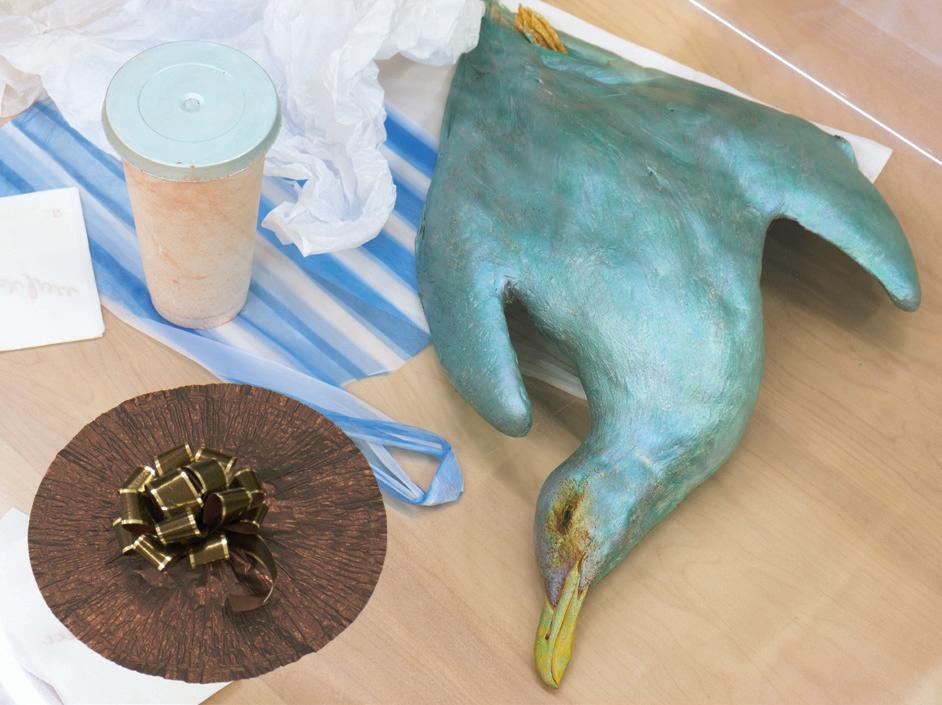
On Floor 3, Dancing in the Light is an exhibition that animates the rich tones and textures of contemporary Black life through portraiture. Drawing entirely from The Wedge Collection, the exhibition invites visitors to come together in imagining a more inclusive, loving and nuanced understanding of Blackness.
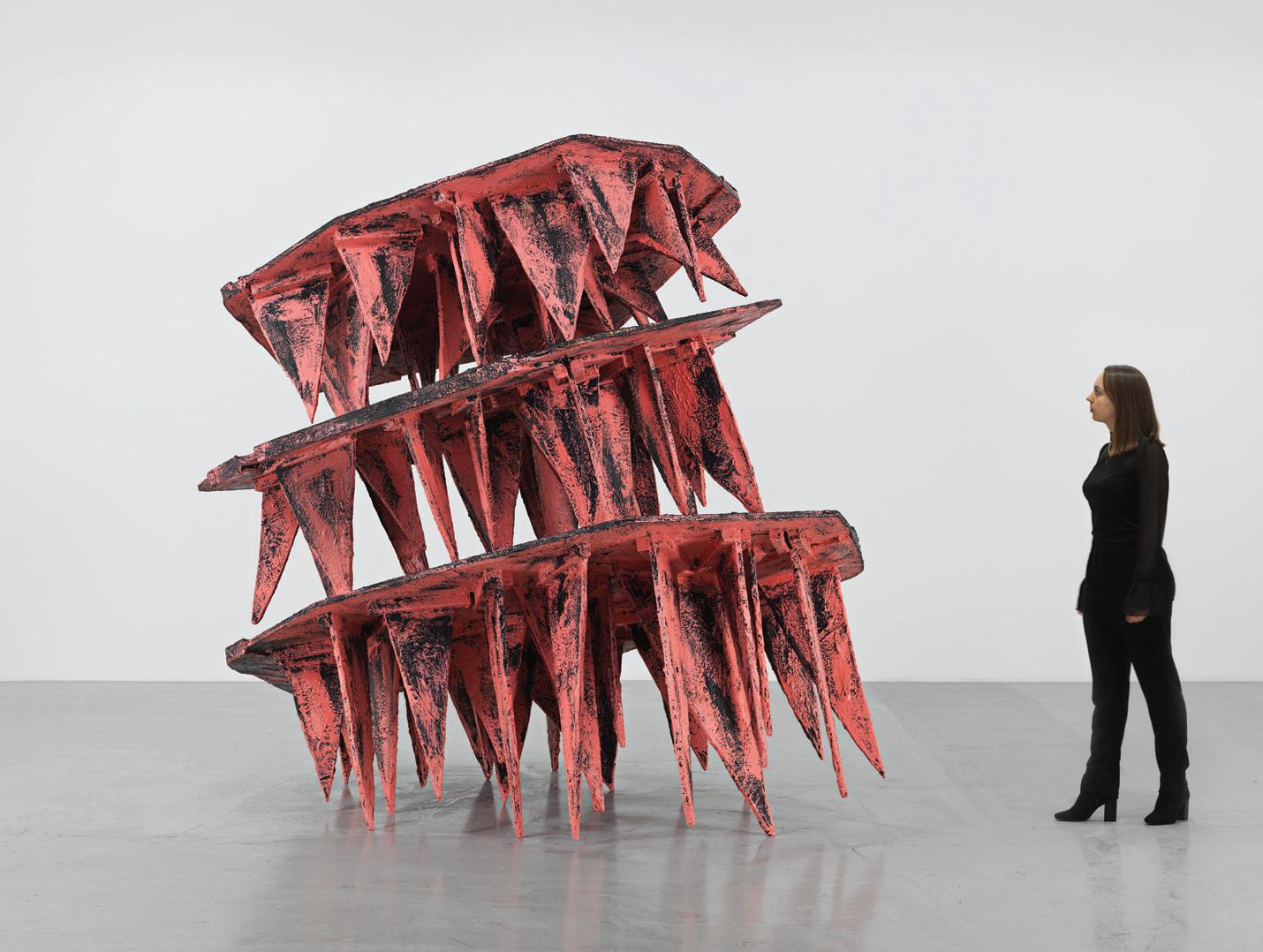
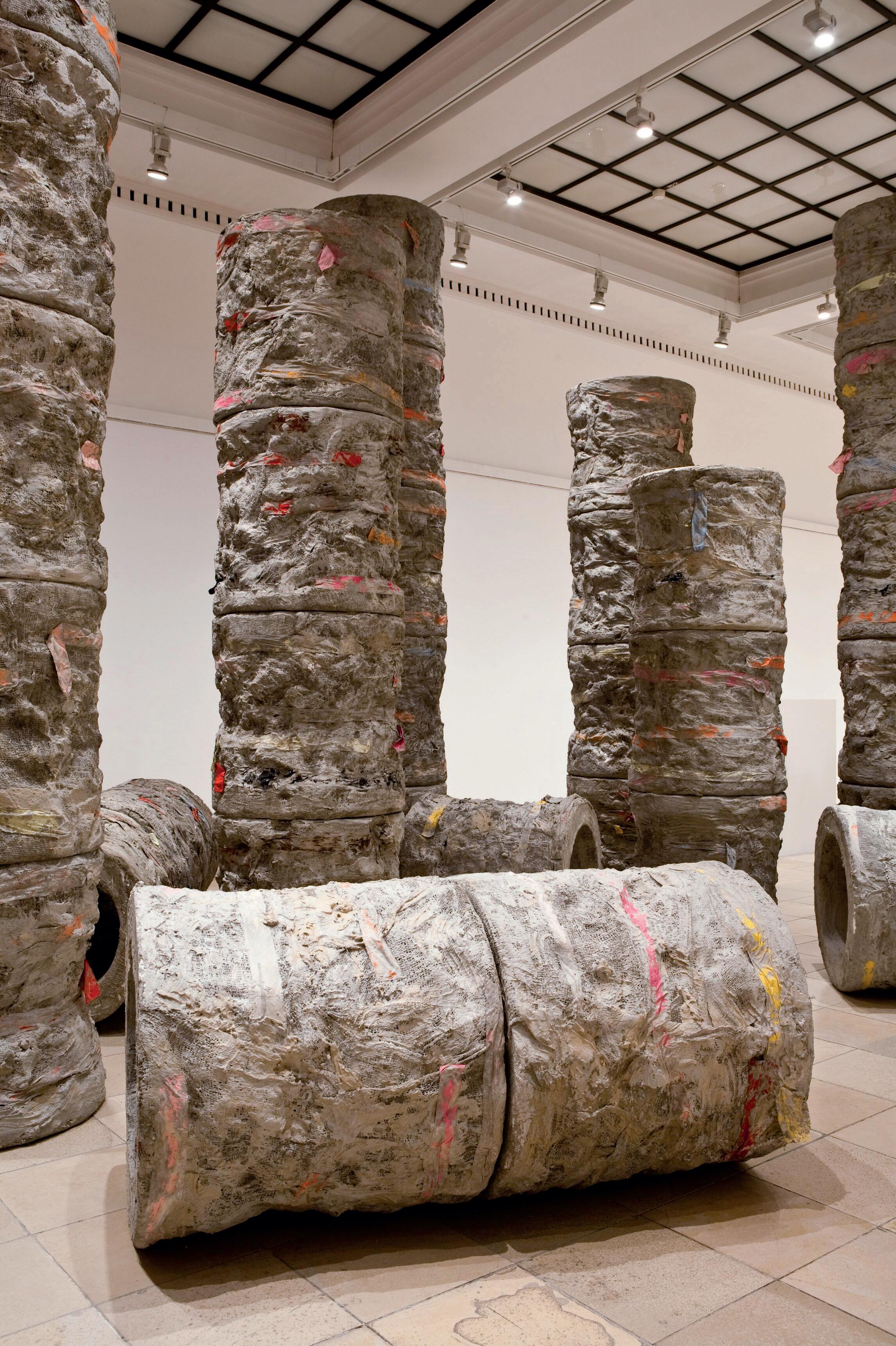
Ground Floor
For more than 50 years, British artist Phyllida Barlow took inspiration from her surroundings to create imposing installations that can be at once menacing and playful. She created anti-monumental sculptures from inexpensive, low-grade materials such as cardboard, fabric, plywood, polystyrene, scrim and cement. These constructions were often painted in industrial or vibrant colours, the seams of their construction left at times visible, revealing the means of their making.
Barlow passed away in early 2023, at which point she was working closely with MOCA on a sitespecific installation. Having visited the building some years earlier, Barlow was taken by its industrial vigour and, in particular, the arresting columns paced throughout the museum’s Ground Floor.
This exhibition brings together a selection of works that Barlow referenced in discussion with the MOCA team. Acknowledging her enthusiasm for the museum's distinct architecture, the show includes untitled: eleven columns, standing, fallen, broken, 2011. Additionally, a collection of works on paper — an integral part of her practice — shares a varied archive of Barlow's broader work with invented forms, use of materials and colour.
This exhibition is co-curated by November Paynter and Rui Mateus Amaral.Liz Magor is one of Canada’s most influential artists. Her practice focuses on the possibilities of sculpture as a narrative form. Attentive to the physicality of an object, she casts and organizes found material so that intense narratives of dependency and desire can emerge. At once sarcastic and sympathetic, Magor’s sculptures spark questions about our belief and emotional investment in the material world.
This solo exhibition at MOCA emphasizes the tensions in her work, playing rough against refined, flimsy against sturdy, fashionable against passé and custom-made against mass-produced. Across the second floor will be varying moments of suspense: objects intercepting one another as they slip, tumble or fall from safety and favour.
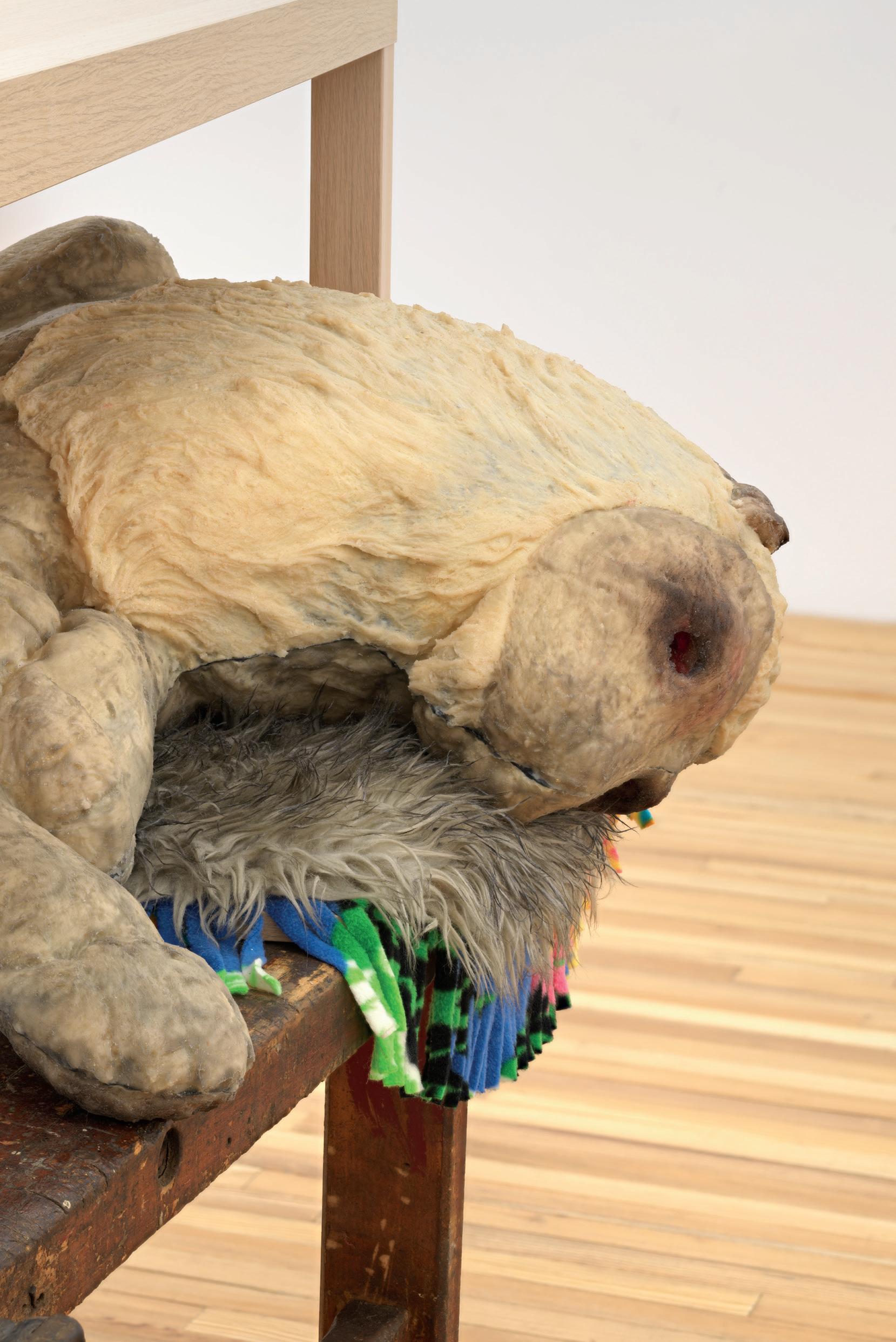
Titled The Separation, Magor’s presentation of newly commissioned and recent works refers to changing values and shifting fates. Borrowing from the complexity of sculpture, the exhibition also invites the viewer to look and relook at their familiar surroundings.
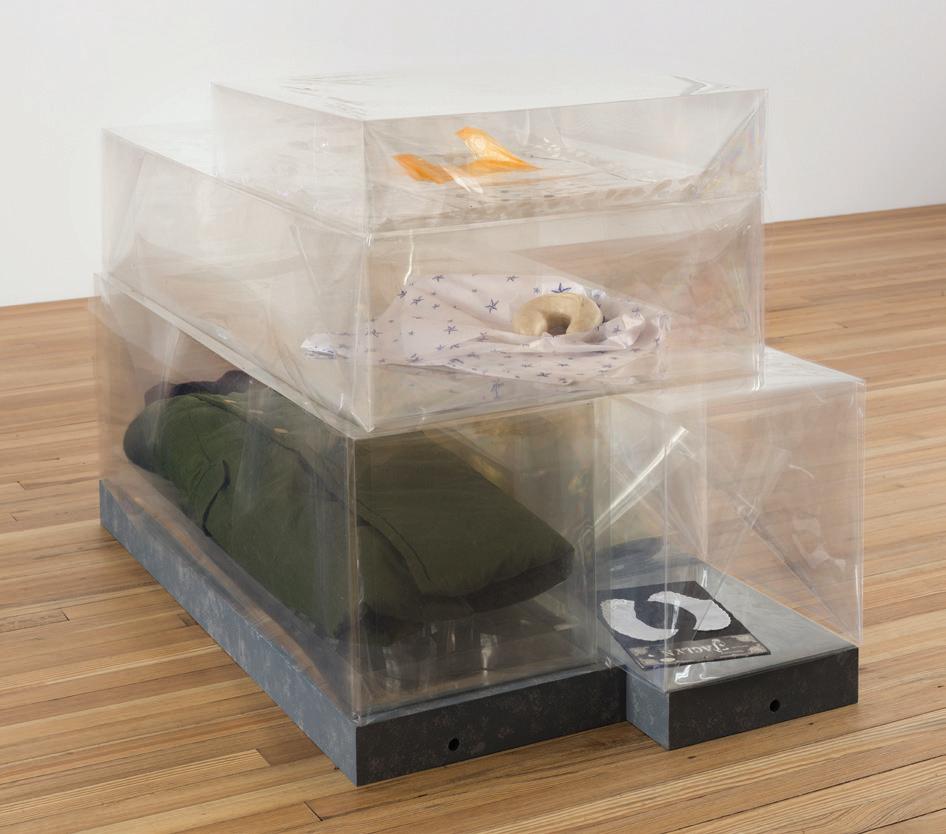 This exhibition is curated by Rui Mateus Amaral.
This exhibition is curated by Rui Mateus Amaral.
Dancing in the Light
as part of The City is a Collection series
Floor 03
Dancing in the Light is an exhibition of work drawn from The Wedge Collection. The show continues MOCA’s ongoing series, The City is a Collection, which brings some of Toronto’s most engaging private collections to the public.
Featuring the work of 44 artists including Oreka James, Carrie Mae Weems, Jonathan Lyndon Chase and Lynette Yiadom-Boakye, Dancing in the Light examines portraiture across a variety of mediums as a way of entering into a more nuanced consideration of contemporary Black life. Rethinking moments of stillness and vulnerability as instances of strength, the exhibition works against the flattened and commodified image of Blackness so often experienced within art history and popular visual culture. Dancing in the Light is conceived of as a capacious place for gathering and study and offers visitors comfortable seating as well as an array of books and music with which to engage.
Established by Kenneth Montague in 1997, The Wedge Collection is one of Canada’s largest private collections of visual art that engages with Black identity and African diasporic culture. The exhibition is testament to the vital role that Montague has played both as a collector and community-builder, and is a reflection of his love for art and his deeply humanistic approach to life.
 Dancing in the Light has been curated and designed by Farida Abu-Bakare and Kate Wong.
Dancing in the Light has been curated and designed by Farida Abu-Bakare and Kate Wong.
MOCA’s fall programme continues with its ongoing site-specific Lightbox commission, located on the museum’s north west facade. This season’s lightbox is by Isabel Okoro, and forms a part of The Wedge Collection exhibition, Dancing in the Light.
Visitors can also enjoy artist talks, exhibition tours, Free Friday Nights powered by Scotiabank, children’s workshops on TD Community Sundays and other public programmes.
Liz Magor, Delivery (red) (detail), 2018. Collection of the Vancouver Art Gallery. Courtesy of Catriona Jeffries, Vancouver. Photo: Rachel Topham Photography.
Phyllida Barlow, untitled: squint; 2018. © Phyllida Barlow.
Courtesy Hauser & Wirth. Photo: Genevieve Hanson.
Jeremy Rodney-Hall, The Love We Share, 2015.
© Jeremy Rodney Hall. Courtesy of Dr. Kenneth Montague | The Wedge Collection.
Phyllida Barlow, untitled: pinkspree; 2018. © Phyllida Barlow. Courtesy Hauser & Wirth. Photo: Genevieve Hanson.
Liz Magor, Stream (detail), 2023. Courtesy of the artist and Catriona Jeffries, Vancouver.
Phyllida Barlow, untitled: eleven columns; standing, fallen, broken (detail), 2011. © Phyllida Barlow. Courtesy Haus der Kunst and Hauser & Wirth. Photo: Wilfried Petzi.
Liz Magor, Drift 2021. Courtesy of the artist and Andrew Kreps Gallery.
Liz Magor, Puffer, 2019. Courtesy of the artist and Andrew Kreps Gallery.
Oreka James, Untitled, 2017. © Oreka James. Courtesy of Dr. Kenneth Montague | The Wedge Collection.
Carrie Mae Weems, Untitled (Woman and Daughter with Makeup) from the Kitchen Table series, 1990/2010.
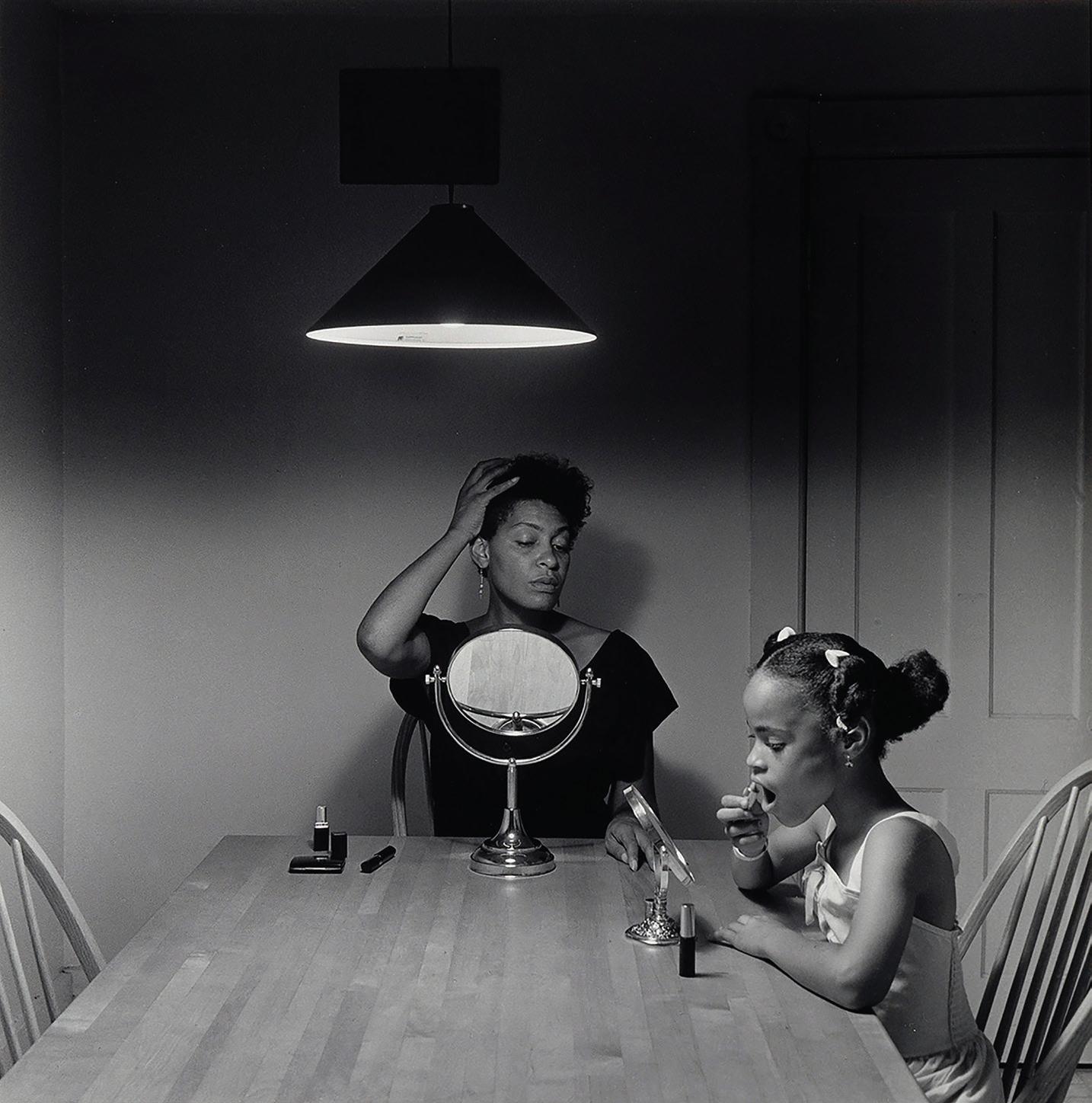
© Carrie Mae Weems. Courtesy of Dr. Kenneth Montague | The Wedge Collection.
Phyllida Barlow, untitled: hung4, 2018 © Phyllida Barlow. Courtesy Hauser & Wirth. Photo: Genevieve Hanson.
MOCA Visionaries
Phyllida Barlow
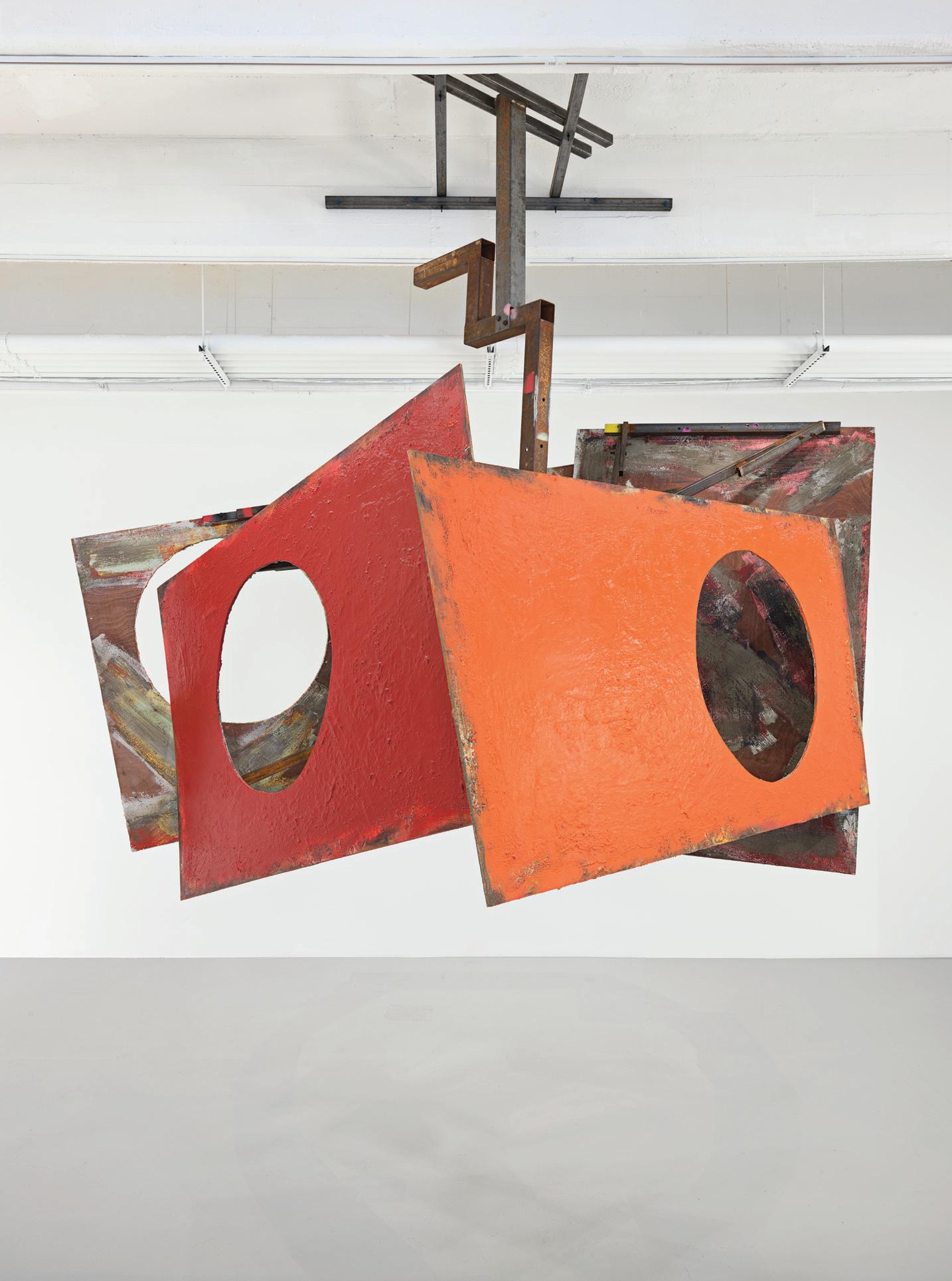
Eleven Columns
Liz Magor
The Separation
Gilles & Julia Ouellette
The Price Family Anonymous
Foundational Partner
Curator's Circle
Michael Bertrand
Diana Billes
Director's Council
Poile Family Foundation
Foundational Partner
Richard & Donna Ivey
Director's Council
Hesty Leibtag & Terry Verk
Nuyten Dime Foundation
Curator's Circle
Bruce Munro Wright
Jane Zeidler
158 Sterling Road Toronto / moca.ca